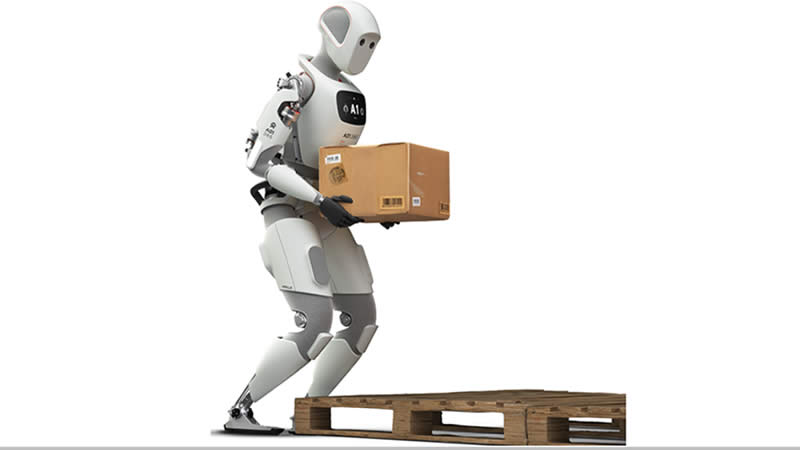Low-Cost Custom Actuators: Apollo’s Edge in the Robotics Market

©apptronik
Earlier this year, Apptronik announced its venture into creating a novel, general-purpose humanoid robot, Apollo. The announcement was no surprise for many, given Apptronik’s track record of unveiling over six humanoid robots and multiple full-body exoskeletons in the last seven to eight years. The firm signaled its readiness to take humanoid robots to the commercial sphere.
Now, Apptronik has officially introduced Apollo to the world, highlighting its potential to revolutionize the industrial workforce, enhancing human interactions and experiences. The company’s vision for Apollo begins in logistics and manufacturing. However, with its vast potential, the robot’s applications could stretch infinitely further.
Earlier this year, what we witnessed was just a prototype. Today, Apptronik presents the alpha model of Apollo. This robot, with human-like dimensions of 1.7 meters in height and 73 kilograms in weight, boasts a considerable payload capacity of 25 kg. Powered by an exchangeable battery, Apollo can operate for approximately four hours. The company currently owns two Apollo units and plans to produce another four.
Apptronik’s initial plan for Apollo revolves around solutions for handling cases and totes in the logistics and manufacturing sectors. But this is merely the beginning. The company envisions Apollo breaking boundaries and expanding into areas like construction, retail, electronics production, home deliveries, elder care, and many more. With Apollo, Apptronik is aiming to bridge the digital and physical realms, enabling the robot to work in tandem with humans, performing tasks that may not be preferable for people.
Some have likened Apollo to the “iPhone of robots.” This analogy has its critics, with concerns that unlike the iPhone – which was both cost-efficient and multi-functional from the outset – robots historically haven’t shown the same promise. Whether Apollo can break this mold and offer immediate versatility remains to be seen. Yet, much of Apollo’s initial success hinges on the real-world applications Apptronik establishes for it. The future might see humanoid robots being widely affordable and adaptable, but that horizon appears distant for now.
The humanoid robotic market is abuzz with robots designed for the standard handling of cases and totes – a mundane, strenuous task that’s short of willing human hands. Robots like Apollo can thrive in this space, especially if they remain cost-effective.


